 UseScraper
VS
UseScraper
VS
 Grabbly
Grabbly
UseScraper
UseScraper is a powerful web scraping and crawling tool designed for speed and efficiency. It allows users to quickly extract data from any website URL and obtain the page content within seconds. For comprehensive data extraction, UseScraper's Crawler can fetch sitemaps or crawl thousands of pages per minute, leveraging its auto-scaling infrastructure.
The tool utilizes a real Chrome browser with JavaScript rendering capabilities. This guarantees that even the most dynamic websites can be scraped and processed accurately. UseScraper is capable of outputting data in several convenient forms, such as clean markdown, plain text or raw HTML.
Grabbly
Grabbly is designed to simplify the web scraping process by allowing users to gather data from any website with just one click. Leveraging advanced artificial intelligence, the tool auto-detects key data points on web pages, even handling complex websites with dynamic content, pagination, and scrolling. The Chrome extension ensures a fast, intuitive experience without needing technical expertise or bulky installations.
Grabbly supports both local and cloud-based operations, offering features such as scheduled scraping, email notifications for page changes, deep web extraction, and rotating IPs for secure access. Users can export their results conveniently to CSV, Excel, or Google Sheets. With flexible pricing plans, Grabbly caters to individual and business data scraping needs across various industries.
Pricing
UseScraper Pricing
UseScraper offers Usage Based pricing .
Grabbly Pricing
Grabbly offers Freemium pricing with plans starting from $9 per month .
Features
UseScraper
- Scraper API: Scrape any webpage quickly and efficiently.
- Crawler API: Crawl entire websites at high speed.
- JavaScript Rendering: Uses a real Chrome browser to process dynamic content.
- Multiple Output Formats: Extract data in plain text, HTML, or markdown.
- Multi-site Crawling: Include multiple websites in one crawl job request.
- Exclude Pages: Exclude specific URLs from a crawl with glob patterns.
- Exclude Site Elements: Write CSS selectors to exclude repetitive content from pages.
- Webhook Updates: Get notified on crawl job status and completion.
- Output Data Store: Access crawler results via API.
- Auto Expire Data: Set an auto expiry on data that you've saved to your own data store.
Grabbly
- AI Data Detection: Automatically identifies and extracts key data points from web pages.
- One-Click Operation: Scrape any website with a single button press, no technical expertise required.
- Chrome Extension: Lightweight extension for seamless integration into the browser.
- Schedule & Monitor: Set recurring data extraction tasks and receive email notifications upon changes.
- Cloud and Local Scraping: Run scraping jobs on your local machine or in the cloud for flexibility.
- Deep Web Extraction: Follows links to extract additional data from deeper website levels.
- Rotating IPs: Avoid blocks by using dynamic IP addresses for each scrape.
- Multiple Export Formats: Export scraped data to CSV, Excel, or Google Spreadsheets.
- API Integration: Access and automate scrapes through available APIs and webhooks.
- Secure Data Transfer: All data transmissions are protected via HTTPS.
Use Cases
UseScraper Use Cases
- Extracting data from websites for market research.
- Gathering content for AI model training.
- Monitoring website changes for competitive analysis.
- Collecting product information from e-commerce sites.
- Archiving web content for compliance or record-keeping.
Grabbly Use Cases
- Extract retail and e-commerce product information such as prices, reviews, and availability.
- Gather recruitment and talent acquisition data from job portals and career sites.
- Generate leads by scraping contact details and company information from professional directories.
- Set up monitoring for changes on competitor websites and receive instant notifications.
- Aggregate and analyze market trends using data from various online sources.
- Automate regular web data collection processes without manual intervention.
- Download structured data for academic or business research needs.
Uptime Monitor
Uptime Monitor
Average Uptime
99.71%
Average Response Time
114.86 ms
Last 30 Days
Uptime Monitor
Average Uptime
100%
Average Response Time
216.28 ms
Last 30 Days
UseScraper
Grabbly
More Comparisons:
-

UseScraper vs AIScraper Detailed comparison features, price
ComparisonView details → -
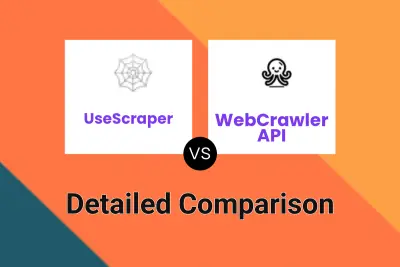
UseScraper vs WebCrawler API Detailed comparison features, price
ComparisonView details → -
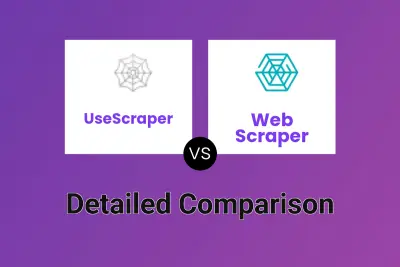
UseScraper vs Web Scraper Detailed comparison features, price
ComparisonView details → -
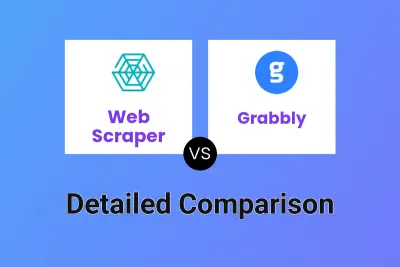
Web Scraper vs Grabbly Detailed comparison features, price
ComparisonView details → -
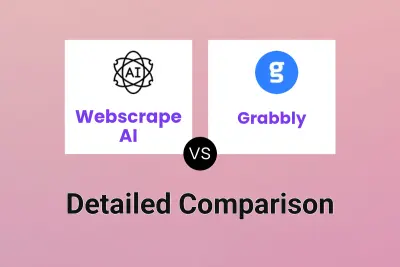
Webscrape AI vs Grabbly Detailed comparison features, price
ComparisonView details → -
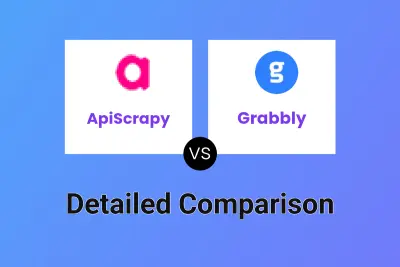
ApiScrapy vs Grabbly Detailed comparison features, price
ComparisonView details → -
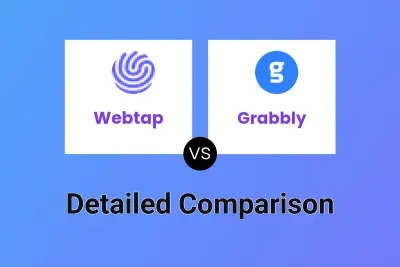
Webtap vs Grabbly Detailed comparison features, price
ComparisonView details → -
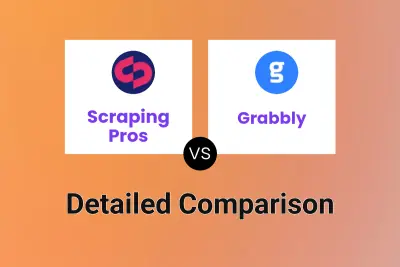
Scraping Pros vs Grabbly Detailed comparison features, price
ComparisonView details →
Didn't find tool you were looking for?